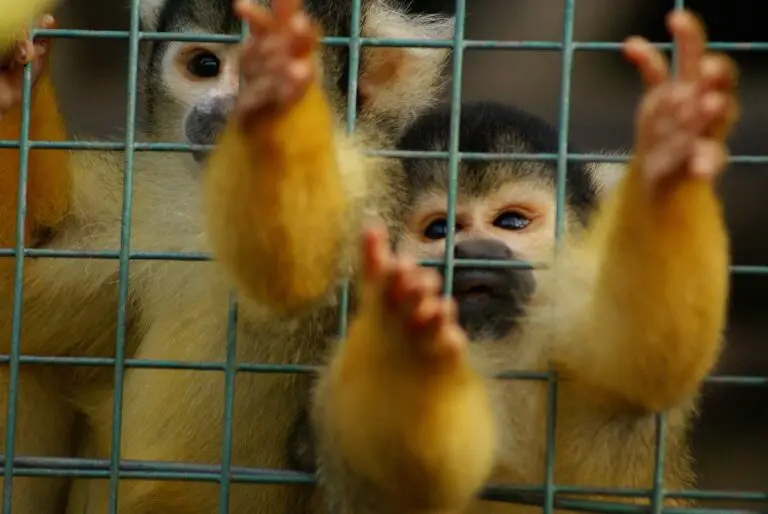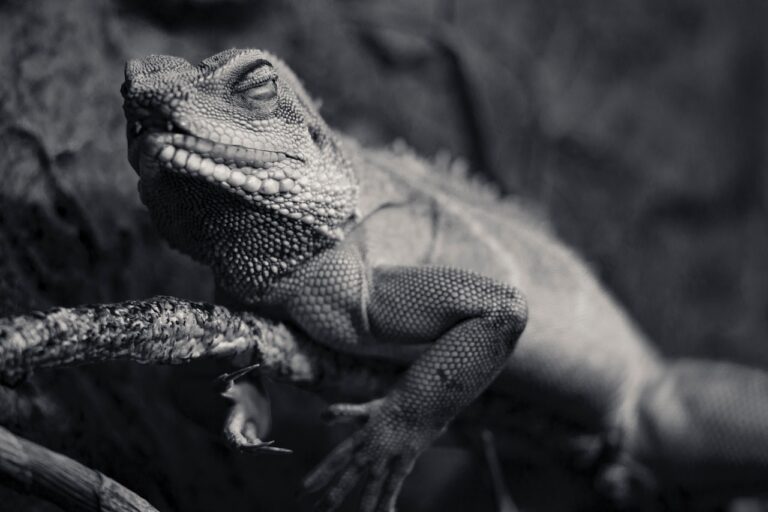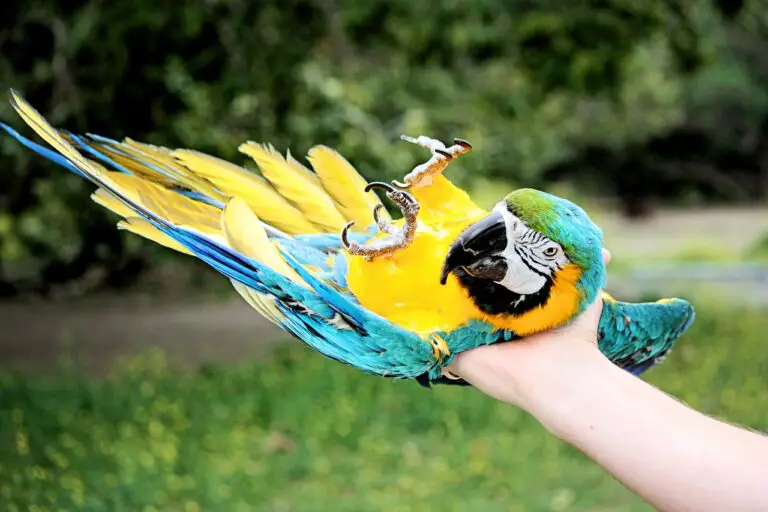How to Deal With an Aggressive Exotic Pet: Early Signs & More
Exotic pets are becoming more and more popular, but what happens when your cute and cuddly exotic pet becomes aggressive?
Dealing with an aggressive exotic pet can be dangerous and stressful, but with the right knowledge and tools, you can manage the situation and keep everyone safe.
In this article, we’ll discuss the various ways to deal with an aggressive exotic pet.
Key takeaways:
- Understanding your exotic pet and its natural behavior is crucial to preventing and managing aggression.
- Early recognition of signs of aggression can help prevent dangerous situations.
- Proper care, socialization, and positive reinforcement training can help prevent aggressive behavior.
- If your exotic pet exhibits aggressive behavior, remain calm and seek the advice of a professional.
- It’s important to research and follow all legal requirements for owning an exotic pet and to take steps to prevent future incidents.
By following these key takeaways, you can better care for and manage an exotic pet, ensuring a safe and happy home for both you and your pet.
Reasons for Aggressive Behavior in Exotic Pets
There are several reasons why exotic pets can become aggressive.
These include:
- Fear
- Pain
- Territorial behavior
- Hormonal changes
- Lack of socialization
Understanding the reasons behind the aggression can help you better address the problem..
Pro tips:
- Research your pet’s species and individual needs to understand their natural behavior and tendencies.
- Observe your pet’s body language and behavior to better understand their mood and potential triggers for aggression.
- Seek advice from a veterinarian or experienced exotic pet owner if you have any questions or concerns about your pet’s behavior.
Early Signs of Aggressive Behavior in Exotic Pets
You need to be able to recognize the early signs of aggressive behavior in your exotic pet.
These may include:
- Hissing
- Growling
- Biting
- Scratching
- Tail flicking
If you notice any of these behaviors, it’s essential to address them right away before they escalate.
Pro tips:
- Look for physical cues such as stiff posture, raised fur or feathers, or dilated pupils.
- Listen for vocalizations such as growling, hissing, or barking.
- Monitor your pet’s behavior around certain people or in certain situations to identify potential triggers.
Preventing Aggressive Behavior in Exotic Pets
Preventing aggressive behavior in exotic pets starts with proper care and socialization.
This includes providing them with a suitable environment, a healthy diet, and opportunities for exercise and play.
Socializing them with humans and other animals at a young age can also prevent aggressive behavior.
Pro tips:
- Provide your pet with a proper diet, exercise, and enrichment to reduce stress and prevent boredom.
- Avoid handling your pet roughly or in a way that may cause them discomfort or pain.
- Socialize your pet from a young age to help them become comfortable around people and other animals.
Handling Aggressive Exotic Pets
Handling an aggressive exotic pet can be dangerous and should only be done by experienced individuals.
If your pet becomes aggressive, don’t forget to remain calm and avoid any sudden movements.
Use a protective barrier, such as a towel or blanket, to protect yourself from bites or scratches.
Pro tips:
- Remain calm and avoid escalating the situation by yelling or making sudden movements.
- Use protective gear such as gloves or a face shield if necessary.
- Consider using a distraction technique such as throwing a toy or blanket to divert your pet’s attention.
Training Your Exotic Pet
Training your exotic pet can help prevent aggressive behavior and improve their overall behavior.
This includes using positive reinforcement techniques to teach them basic commands and behaviors.
However, training should only be done by experienced professionals.
Pro tips:
- Use positive reinforcement techniques such as treats or praise to reward good behavior.
- Be consistent in your training and set clear boundaries for your pet.
- Work with a professional trainer or behaviorist if necessary to address more serious behavior issues.
Working with a Professional
Working with a professional, such as an exotic animal trainer or veterinarian, can help you address aggressive behavior in your exotic pet.
They can provide advice on how to prevent and manage aggressive behavior, as well as offer training and behavior modification techniques.
Pro tips:
- Seek the help of a veterinarian or behaviorist if your pet’s behavior becomes a safety concern.
- Research and choose a qualified and experienced professional who specializes in exotic pets.
- Follow their advice and recommendations closely to ensure the best possible outcome for your pet.
Legal Considerations
Keeping exotic pets may be illegal in some states or countries, or may require special permits or licenses.
You need to get familiar with the laws and regulations in your area before getting an exotic pet, and to comply with all legal requirements.
Pro tips:
- Research the laws and regulations in your area regarding owning an exotic pet.
- Obtain any necessary permits or licenses before bringing your pet home.
- Follow all legal requirements to avoid potential fines or legal issues.
Dealing with Injuries Caused by an Aggressive Exotic Pet
If you or someone else is injured by an aggressive exotic pet, seek medical attention immediately.
Injuries from exotic pets can be serious and may require specialized treatment.
Pro tips:
- Seek immediate medical attention if your pet injures you or someone else.
- Report any injuries caused by your pet to your veterinarian or local animal control agency.
- Take steps to prevent future incidents by addressing any underlying behavior issues and providing proper care for your pet.
Preventing Future Incidents
Once you’ve addressed the aggressive behavior in your exotic pet, it’s vital to take steps to prevent future incidents.
This includes continuing to provide proper care and socialization, using positive reinforcement training techniques, and avoiding situations that may trigger aggressive behavior.
Pro tips:
- Continue to provide proper care and socialization for your pet to reduce stress and prevent aggressive behavior.
- Use positive reinforcement training techniques to reinforce good behavior.
- Avoid situations that may trigger your pet’s aggressive behavior, such as rough play or unfamiliar people or animals.
Conclusion
Dealing with an aggressive exotic pet can be a stressful and dangerous situation, but with the right knowledge and tools, it can be managed.
To manage an aggressive exotic pet, it’s essential to understand their behavior, recognize potential triggers, and provide proper care, socialization, and training.
If you’re struggling, seek the help of a professional and follow all legal requirements. Let’s provide the best possible care for our beloved exotic pets
FAQs
Can any exotic pet become aggressive?
While any animal has the potential to become aggressive, some exotic pets, such as large reptiles or primates, may be more prone to aggression than others.
How do I know if my exotic pet is feeling aggressive?
Signs of aggression in exotic pets can include hissing, growling, biting, scratching, or tail flicking.
If you notice any of these potentially worrysome behaviors, remember to address them right away.
Can I train my exotic pet to be less aggressive?
Yes, positive reinforcement training techniques can help prevent and manage aggressive behavior in exotic pets.
However, training should only be done by experienced professionals.
What should I do if I or someone else is injured by my aggressive exotic pet?
Seek medical attention immediately.
Injuries from exotic pets can be serious and may require specialized treatment.
Are there legal requirements for owning an exotic pet?
Yes, keeping exotic pets may be illegal in some states or countries, or may require special permits or licenses.
It’s your responsibility to research the laws and regulations in your area before getting an exotic pet, and to comply with all legal requirements.
Peter Stones is the founder of Exotic Pets Place, the leading online resource for exotic pet care information.
With over 10 years of hands-on exotic pet ownership experience, he is deeply passionate about sharing his expertise to help others properly care for their unusual pets.
When he's not writing extensively researched articles or connecting with fellow exotic pet enthusiasts worldwide, you can find Peter at home tending to his own beloved menagerie of exotic animals.


![The Pros and Cons of Owning an Exotic Pet in College [+ FAQs], a man with a backpack](https://exoticpetsplace.com/wp-content/uploads/2023/06/The-Pros-and-Cons-of-Owning-an-Exotic-Pet-in-College-FAQs-a-man-with-a-backpack-768x512.jpg)



![Exotic Pet Friendly Cities The [Top 10] Worldwide Destinations, Sydney Opera House](https://exoticpetsplace.com/wp-content/uploads/2023/05/Exotic-Pet-Friendly-Cities-The-Top-10-Worldwide-Destinations-Sydney-Opera-House-768x512.jpg)
